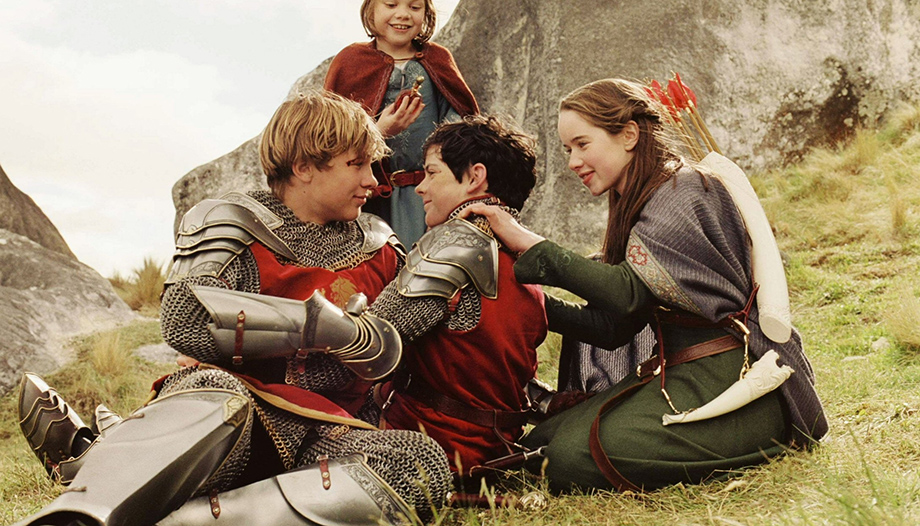"Love, Friendship and Storytelling Talking with Young People about the Best-Loved Works of Their Generation" is the title of the book presented during a meeting organized by the Iscom Association at the Pontifical University of the Holy Crosswith the participation of some communication directors of Catholic institutions.
Cecilia Galatolo and Norberto González Gaitano, who together with Gema Bellido are the editors of the publication, recalled how on September 24 and 25, 2021, at the Pontifical University of the Holy Cross in Rome, the literary discussions initiated by Educating young people through the classics.
Love, friendship and storytelling - and temporarily suspended due to the Covid pandemic - with focus groups examining books, movies and television series popular with young people.
The works had been chosen on the basis of a representative study, conducted two years earlier, with a sample of 3,700 subjects between 18 and 29 years of age from five European countries (France, Germany, Great Britain, Italy and Spain) and four countries in the Americas (Argentina, Colombia, Mexico and the United States).
Discussion groups were organized on the most popular works of fiction (according to survey responses): for conversation about books, Harry Potter and the Philosopher's Stonel; for conversation about movies, The Chronicles of Narnia: The Lion, the Witch and the Wardrobe y Titanicfor conversation about television series, The Big Bang Theory and Thirteen Reasons Why.
The researchers present the results of the focus groups in chapters two and three, and the book's editor has contributed an introductory essay -Storytelling and character formation. Talking with young people about books and movies, on the relationship between literature and character formation, which outlines the theoretical framework of the entire project.
"While it is true," González Gaitano observed, "that 50 Shades of GreyBritish author E. L. James' book, in which passion turns into slavery and love degenerates into oppression, has been widely read among young people (in sixth place in the rankings) - probably also thanks to the publicity bombardment - but it does not surpass works of great educational value such as The Little Princeby Antoine de Saint-Exupéry, or The Lord of the Rings, by J. R. R. R. Tolkien, where respect, humility and solidarity are highlighted".
Although there is no shortage of those who appreciate films such as Before youThwa Sharrock's film, which extols the individualistic pursuit of happiness, much more popular are films in which the protagonists heroically give their lives for others (Titanicby James Cameron, Spidermanby Sam Raimi, The Chronicles of Narnia, by Andrew Adamon).
Reflection on cinema and the family
The initiative is part of the activities of Familyandmedia, an international think tank that analyzes the relationship between family, media and society.
The objective of the research is twofold. On the one hand, to study how the family is represented by the mass media, identifying also the forms and effects of the use of media content and the use of technology. On the other hand, it is proposed to examine how the institutions that promote the family elaborate their proposals and communicate their message in the public space.
The objective is to contribute to the dissemination of a sensitivity and culture for a correct and balanced relationship with the media for human growth and character formation.
Familyandmedia aims to promote, through empirical analysis, a positive vision of the natural anthropology of the family, offering "a framework" to guide the communicative action of organizations and institutions dedicated to promoting the family in the long term.
Esselunga's commercial
Among the possible areas of research to be developed in the near future will probably also include the representation of the family in the advertising narrative. Think of the great uproar caused in Italy by the Esselunga ad, in which Emma, a child of parents who no longer live together, makes her mother buy a peach from the supermarket and then gives it to her father, making him believe that the gift came from her mother.
The message is clear and simple: the girl is sad because her parents are separated, and resorts to a little subterfuge in the hope of reuniting them. Within hours of its airing, criticism and praise are pouring in. Some say the ad exploits children's pain for commercial purposes.
There are those who invite us to reflect on the trolling of Italians, for many of whom "even a peach risks becoming a luxury". There are those who read the ad as an attack on the divorce law and those who, vice versa, see it as a tribute to the traditional family. There are those who defend divorced parents and explain that not all children of divorced parents are unhappy, just as not all children of married parents are happy.
The public's reaction to the story of Emma and the peach suggests that, perhaps, between advertising messages and advertising stories, people prefer advertising stories.








